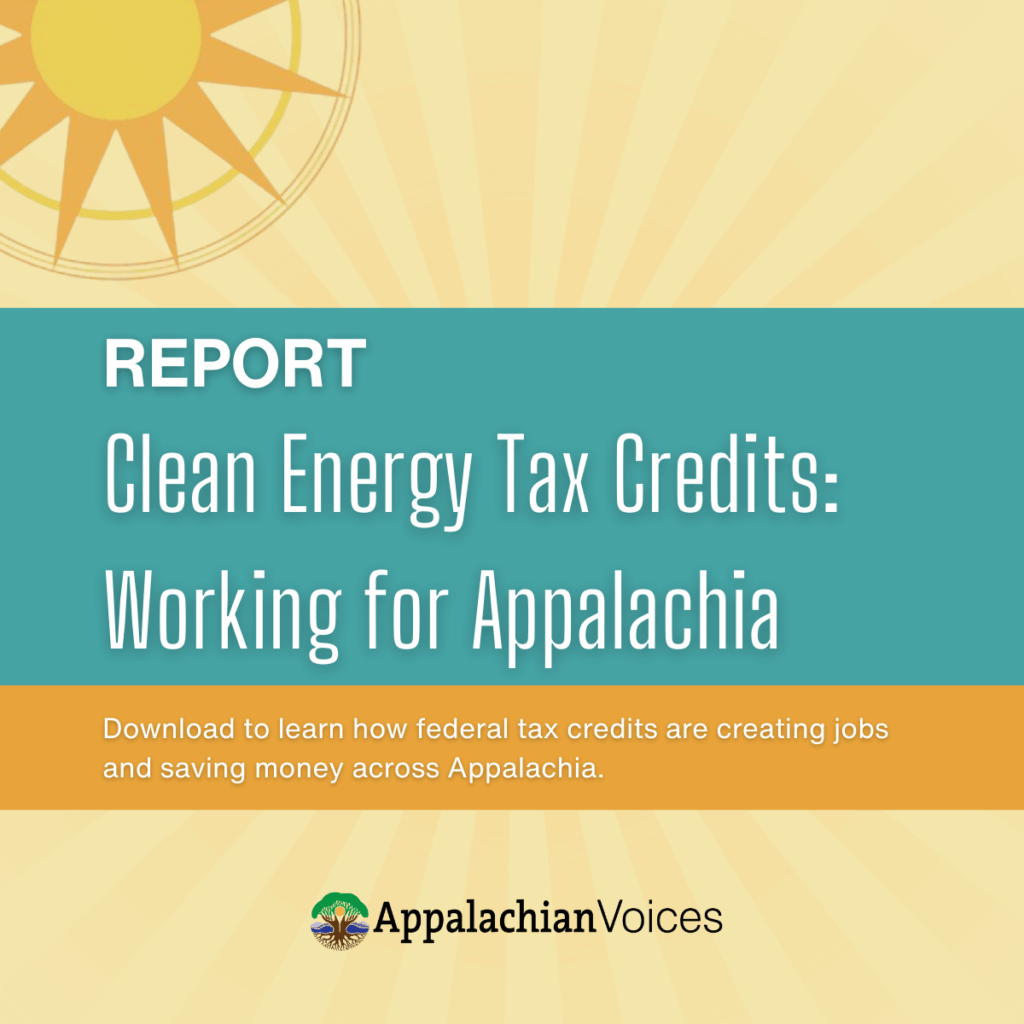In 2022, Congress enacted the Inflation Reduction Act, which expanded a suite of clean energy tax credits and incentives to support low- and zero-emission energy resources. These clean energy tax credits also support domestic manufacturing of energy technologies. Since that time, clean energy jobs have been booming across the country, with continued growth expected in the coming years, assuming the continuation of these federal tax credits.
How Clean Energy Tax Credits Benefit Appalachia
These credits are having major impacts in Appalachia by:
- Boosting local economies
- Creating jobs with transferable skills in the installation and maintenance of clean energy projects
- Enhancing energy reliability
- Lowering people’s electricity bills and saving money for local institutions
- Cutting pollution in rural, low-income and other underserved communities
New Research on Clean Energy Tax Credits in Appalachia
Appalachian Voices released its report, Clean Energy Tax Credits: Working for Appalachia, to illustrate the benefits that federal tax credits for clean energy and energy efficiency are having on nonprofits and businesses throughout Central and Southern Appalachia, specifically Kentucky, North Carolina, Ohio, Tennessee, Virginia and West Virginia.
What’s Inside the Clean Energy Tax Credits Report
The comprehensive report features:
- An overview of these tax credits and how they can be utilized
- National and state impact statistics and success stories
- More than 20 project examples showcasing clean energy tax credits in action
- Spotlights on installers and key partners from the region implementing clean energy solutions
Learn How Clean Energy Tax Credits Can Work for You
Ready to discover how these incentives are creating jobs and reducing energy costs? Download our detailed report today.

